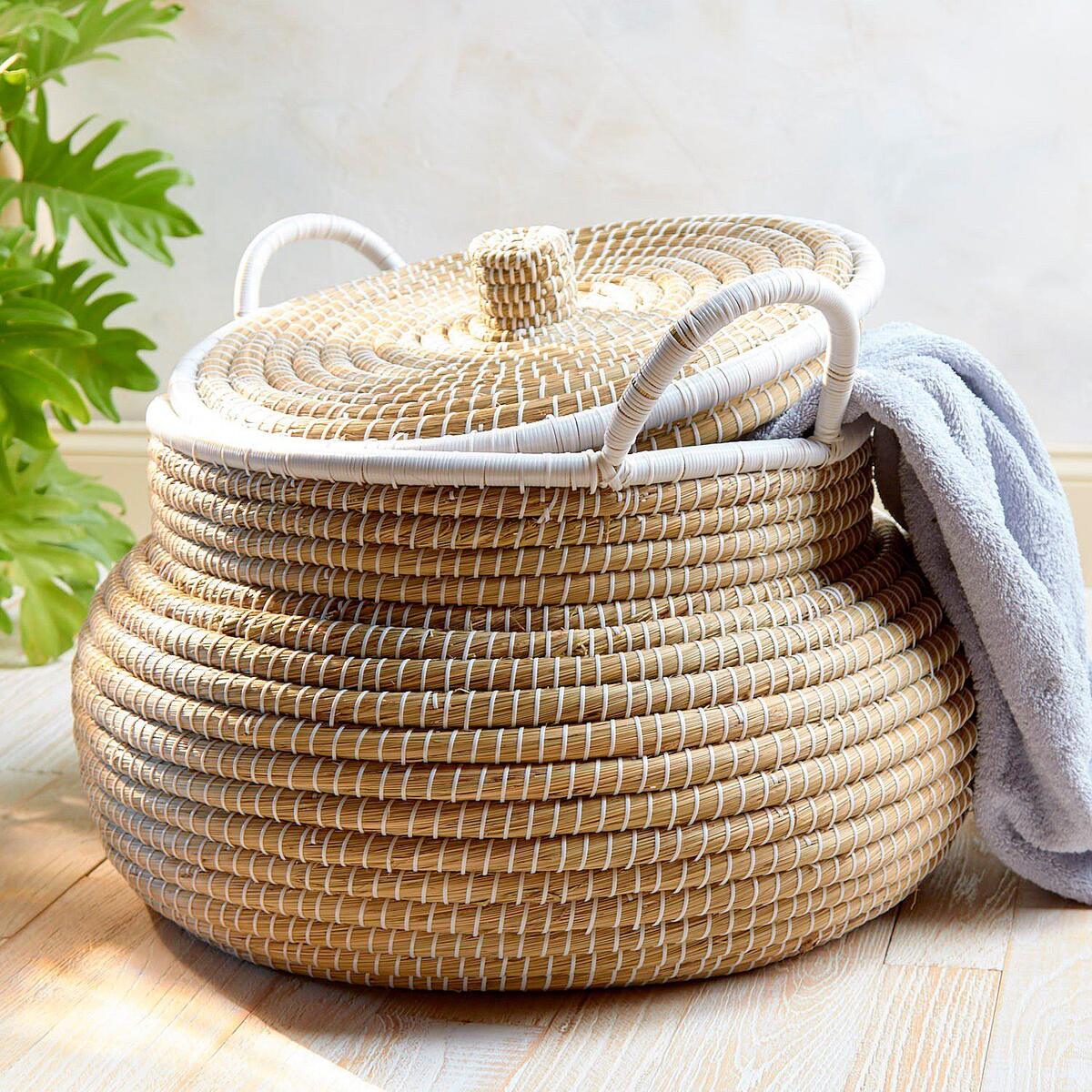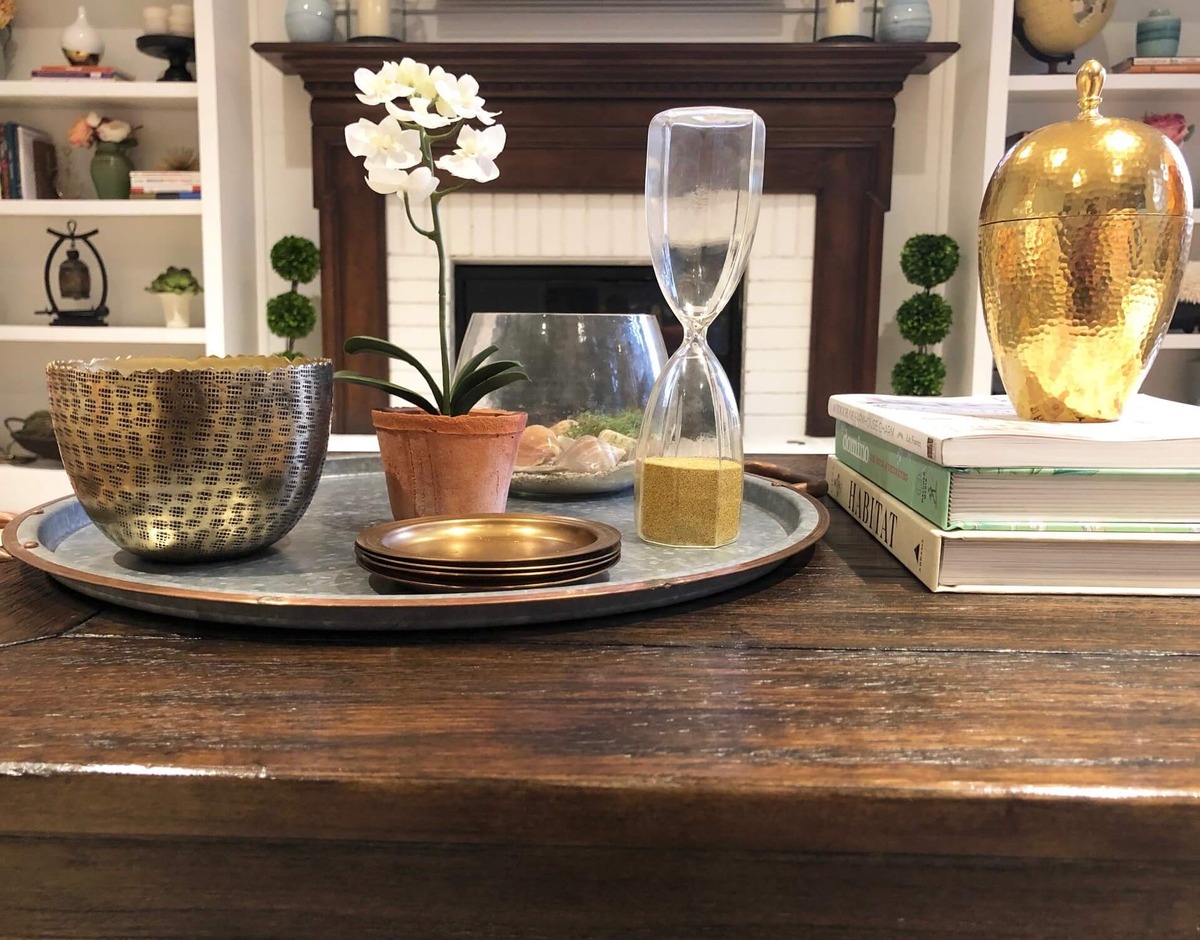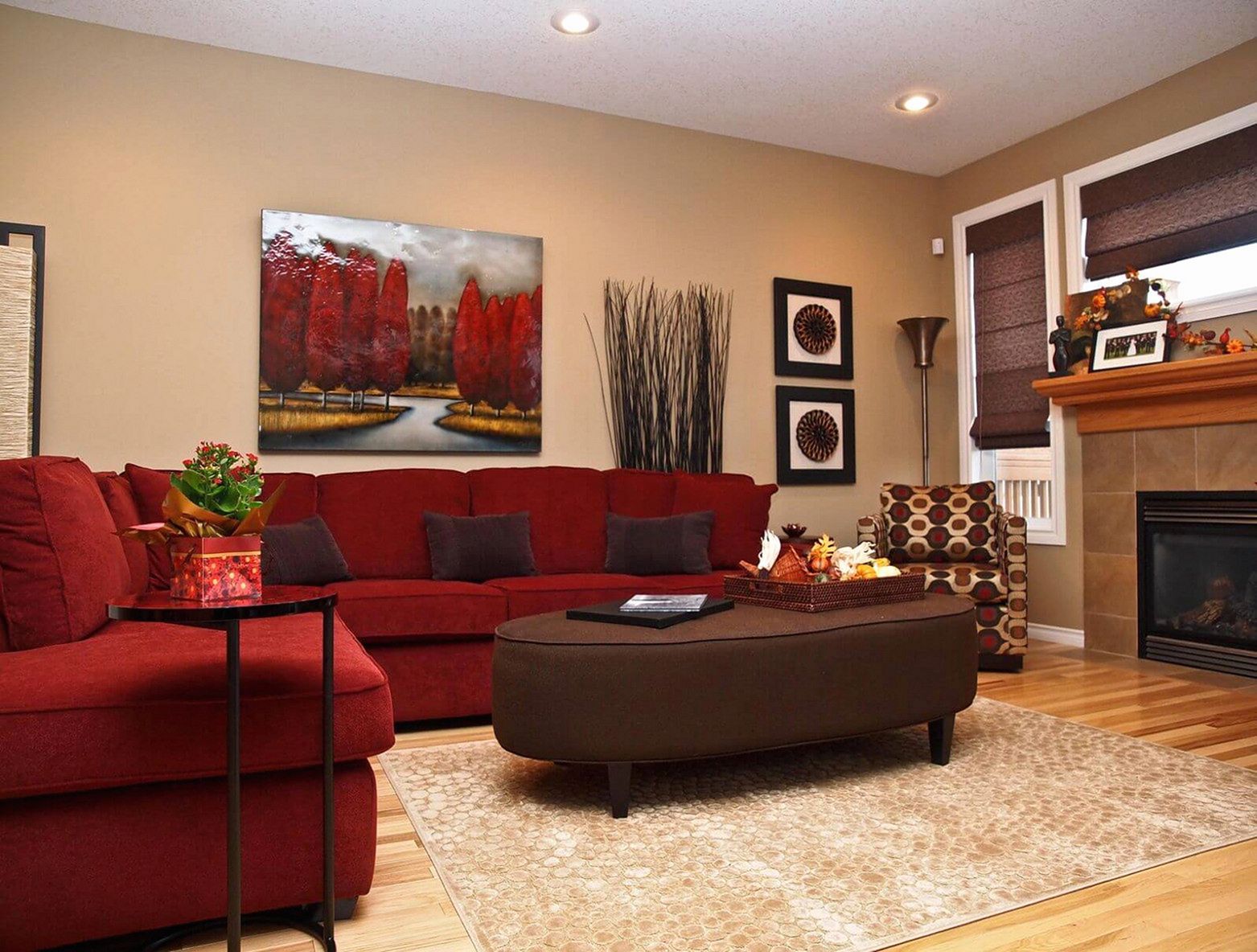Home>Furniture & Design>Interior Design Trends>What Is Fair Trade Home Decor


Interior Design Trends
What Is Fair Trade Home Decor
Modified: January 5, 2024
Discover the latest interior design trends with fair trade home decor. Elevate your space with ethical and stylish home decor pieces. Explore now!
(Many of the links in this article redirect to a specific reviewed product. Your purchase of these products through affiliate links helps to generate commission for Storables.com, at no extra cost. Learn more)
**
Introduction
**
Welcome to the world of fair trade home decor, where ethical and sustainable practices meet exquisite craftsmanship and timeless design. In recent years, there has been a growing awareness and appreciation for fair trade products, including home decor items. This shift in consumer mindset reflects a desire to support artisans and communities while adorning living spaces with unique and meaningful pieces.
The concept of fair trade transcends mere transactions; it embodies a commitment to social responsibility, environmental stewardship, and economic empowerment. By delving into the realm of fair trade home decor, we embark on a journey that celebrates cultural diversity, honors traditional artistry, and promotes a more equitable global marketplace.
In this article, we will explore the essence of fair trade, delve into the realm of fair trade home decor, uncover the benefits of embracing this ethos, and discover how individuals can actively support and promote fair trade practices. Whether you are a seasoned advocate for ethical consumerism or a newcomer to the world of fair trade, this exploration promises to inspire and inform, shedding light on the transformative power of conscious consumption.
Join us as we venture into the realm of fair trade home decor, where each piece tells a story, and every purchase makes a positive impact.
**
Key Takeaways:
- Fair trade home decor empowers artisans, preserves cultural traditions, and promotes sustainability, creating unique and meaningful living spaces while supporting ethical consumerism.
- By embracing fair trade home decor, individuals contribute to a more equitable global marketplace, fostering positive social, economic, and environmental impacts while celebrating the beauty of human creativity and resilience.
Read more: What Are The Trades In Construction
What Is Fair Trade?
**
Fair trade is a social movement and business model that prioritizes equitable partnerships, sustainable development, and fair wages for producers in developing countries. At its core, fair trade seeks to address the power imbalances inherent in conventional trade practices, aiming to create a more just and inclusive global economy. By adhering to fair trade principles, companies and consumers can support marginalized artisans and farmers while promoting environmental sustainability and cultural preservation.
Key tenets of fair trade include:
- Fair Compensation: Fair trade ensures that producers receive a fair price for their goods, providing them with a reliable and dignified income. This compensation empowers artisans and farmers to support their families, invest in their communities, and pursue a better quality of life.
- Safe and Empowering Work Environments: Fair trade organizations prioritize safe working conditions and reject exploitative practices such as child labor and discrimination. By upholding these standards, they foster environments where individuals can thrive and develop their skills.
- Community Development: Fair trade initiatives often contribute to community development projects, such as building schools, healthcare facilities, and infrastructure. This holistic approach aims to address social challenges and enhance the well-being of entire communities.
- Environmental Stewardship: Emphasizing sustainable production methods, fair trade promotes eco-friendly practices that minimize harm to the environment. This includes using natural and renewable materials, reducing waste and pollution, and supporting organic farming techniques.
- Transparency and Accountability: Fair trade organizations prioritize transparency throughout the supply chain, providing consumers with insight into the origins of the products they purchase. By fostering accountability, fair trade promotes trust and ethical decision-making.
By embracing fair trade principles, individuals and businesses can contribute to a more ethical and sustainable global marketplace, fostering positive change and supporting the livelihoods of artisans and communities around the world.
**
Fair Trade Home Decor
**
Fair trade home decor encompasses a diverse array of artisanal creations that infuse living spaces with beauty, cultural richness, and a sense of ethical purpose. From handcrafted textiles and ceramics to intricately designed furniture and decorative accents, fair trade home decor offerings reflect the skill, heritage, and creativity of talented artisans from across the globe.
When exploring fair trade home decor, one encounters a captivating tapestry of traditions, techniques, and stories woven into each piece. These items not only adorn interiors with exceptional craftsmanship but also embody the values of fair trade, empowering artisans and fostering sustainable livelihoods.
Some popular categories of fair trade home decor include:
- Textiles: From vibrant handwoven rugs and intricately embroidered pillow covers to luxurious throws and tapestries, fair trade textiles showcase the artistry of weavers and textile artisans. These pieces often incorporate traditional patterns and techniques, adding a touch of cultural heritage to homes.
- Ceramics and Pottery: Handcrafted ceramic vases, bowls, and dinnerware exemplify the beauty of artisanal pottery. Each piece bears the marks of meticulous craftsmanship, celebrating the timeless allure of handmade ceramics while supporting the livelihoods of skilled potters.
- Furniture and Woodwork: Artisan-crafted furniture, such as chairs, tables, and shelving, reflects the beauty of natural materials and the expertise of woodworking traditions. These pieces often blend contemporary design with traditional craftsmanship, offering a harmonious balance of functionality and artistry.
- Decorative Accents: From intricately carved wooden sculptures to metalwork candle holders and wall art, fair trade decorative accents add a touch of elegance and cultural flair to interiors. These accents serve as conversation starters, inviting admiration for the artistry and cultural significance they embody.
- Artisanal Lighting: Handcrafted lamps, lanterns, and light fixtures bring warmth and character to living spaces. These lighting creations often showcase traditional techniques, such as hand-blown glass or intricately designed metalwork, resulting in luminous works of art.
By incorporating fair trade home decor into their living spaces, individuals not only enhance their homes with unique and meaningful pieces but also contribute to a global ecosystem of ethical and sustainable trade, where artisans are valued, traditions are preserved, and communities are empowered.
**
When looking for fair trade home decor, look for products that are certified by organizations like Fair Trade USA or the World Fair Trade Organization. This ensures that the artisans and workers involved in making the products are paid fair wages and work in safe conditions.
Benefits of Fair Trade Home Decor
**
Embracing fair trade home decor offers a multitude of benefits that extend beyond the aesthetic appeal of artisanal pieces. When individuals choose to adorn their homes with fair trade decor, they actively contribute to positive social, economic, and environmental impacts. Some of the key benefits of integrating fair trade home decor into living spaces include:
- Empowering Artisans and Communities: Fair trade home decor provides artisans with fair compensation and dignified working conditions, empowering them to support their families and invest in their communities. By purchasing these items, consumers directly contribute to the economic well-being of talented artisans around the world.
- Preserving Traditional Craftsmanship: Many fair trade home decor pieces are imbued with centuries-old crafting techniques and cultural significance. By supporting fair trade, individuals help preserve traditional craftsmanship, ensuring that these skills are passed down to future generations and that cultural heritage remains vibrant and relevant.
- Promoting Sustainability: Fair trade often emphasizes sustainable and eco-friendly production methods, incorporating natural materials and reducing environmental impact. By choosing fair trade home decor, individuals support environmentally conscious practices and contribute to a more sustainable global marketplace.
- Fostering Ethical Consumerism: By prioritizing fair trade home decor, consumers align themselves with ethical consumerism, making conscious choices that reflect their values and support fair and equitable trade practices. This fosters a sense of connection with the artisans behind the products and promotes a more transparent and responsible approach to consumption.
- Enhancing Cultural Appreciation: Fair trade home decor items often carry cultural significance, reflecting the unique traditions and artistic expressions of diverse communities. Incorporating these pieces into living spaces enriches cultural appreciation and serves as a tangible celebration of global diversity and creativity.
- Creating Unique and Meaningful Spaces: Fair trade home decor offers an opportunity to adorn living spaces with one-of-a-kind pieces that tell stories of heritage, skill, and human connection. These items infuse homes with a sense of authenticity and individuality, creating spaces that resonate with personal and global narratives.
By recognizing and embracing the benefits of fair trade home decor, individuals can transform their homes into havens of ethical beauty, where each piece serves as a testament to the power of conscious consumer choices and the enduring impact of supporting fair trade practices.
**
How to Support Fair Trade Home Decor
**
Supporting fair trade home decor involves conscious decision-making and a commitment to ethical consumerism. By actively seeking out and purchasing fair trade products, individuals can play a pivotal role in promoting sustainable and equitable trade practices. Here are several ways to support fair trade home decor:
- Research and Awareness: Educate yourself about fair trade principles and the impact of ethical consumer choices. Familiarize yourself with fair trade certifications and organizations that uphold ethical standards in the production of home decor items.
- Seek Certified Products: Look for fair trade certifications, such as Fair Trade Federation, World Fair Trade Organization (WFTO), or Fair Trade Certified labels when shopping for home decor. These certifications indicate that the products have been ethically sourced and produced, adhering to fair trade standards.
- Explore Fair Trade Retailers: Discover and support retailers and online platforms that specialize in fair trade home decor. These establishments curate collections of artisanal pieces, ensuring that each item meets fair trade criteria and supports the livelihoods of skilled craftspeople.
- Engage with Artisan Stories: When purchasing fair trade home decor, seek out information about the artisans and communities behind the products. Understanding the stories and traditions woven into each piece adds depth and meaning to the decor, fostering a deeper connection with the artistry and cultural heritage it represents.
- Advocate for Fair Trade: Spread awareness about fair trade practices and the importance of ethical sourcing in the home decor industry. Engage in conversations about fair trade, share the stories of artisans, and encourage others to consider the impact of their purchasing decisions.
- Support Fair Trade Events: Attend fairs, markets, and events that showcase fair trade home decor and artisanal crafts. These gatherings provide opportunities to directly engage with artisans, learn about their work, and purchase unique pieces while supporting fair trade initiatives.
- Consider Ethical Gifting: When selecting gifts for loved ones, opt for fair trade home decor items that carry meaningful stories and embody ethical values. By sharing fair trade gifts, individuals can extend the reach of ethical consumerism and introduce others to the beauty of artisan-crafted decor.
- Embrace Longevity and Quality: Choose fair trade home decor with a focus on longevity and quality. By investing in well-crafted, timeless pieces, individuals contribute to sustainable consumption practices and reduce the environmental impact of home decor purchases.
By actively engaging in these practices, individuals can champion fair trade principles within the realm of home decor, fostering a marketplace where ethical sourcing, cultural appreciation, and sustainable livelihoods converge to create a more equitable and harmonious global trade landscape.
**
Read more: What Is A Trade In Construction
Conclusion
**
The world of fair trade home decor beckons individuals to embark on a journey that transcends mere decoration, inviting them to become advocates for ethical sourcing, cultural preservation, and sustainable livelihoods. By embracing fair trade principles and integrating artisan-crafted pieces into their living spaces, individuals can weave a narrative of compassion, empowerment, and global interconnectedness.
From the intricate textiles that bear the imprint of skilled weavers to the handcrafted furniture that embodies the artistry of woodworking traditions, fair trade home decor reflects the essence of human creativity and resilience. Each piece tells a story of heritage, craftsmanship, and the transformative power of conscious consumer choices.
By recognizing the value of fair trade home decor, individuals not only adorn their homes with beauty and meaning but also contribute to a more equitable and sustainable world. They empower artisans, preserve cultural legacies, and foster a marketplace where ethical values and human dignity take center stage.
As we navigate the realm of fair trade home decor, let us continue to champion the principles of fairness, sustainability, and cultural appreciation. Let us seek out the stories behind each piece, honor the traditions embedded within them, and celebrate the artisans who pour their skill and passion into every creation.
By supporting fair trade home decor, we become part of a global tapestry where every thread represents a commitment to justice, compassion, and the enduring beauty of human ingenuity. Together, we can transform our homes into sanctuaries of ethical beauty, where every adornment carries the legacy of craftsmanship and the promise of a brighter, more inclusive future.
Join the movement, embrace fair trade home decor, and let your living spaces become testaments to the power of conscious consumerism and the profound impact of supporting artisans and communities around the world.
Frequently Asked Questions about What Is Fair Trade Home Decor
Was this page helpful?
At Storables.com, we guarantee accurate and reliable information. Our content, validated by Expert Board Contributors, is crafted following stringent Editorial Policies. We're committed to providing you with well-researched, expert-backed insights for all your informational needs.















0 thoughts on “What Is Fair Trade Home Decor”